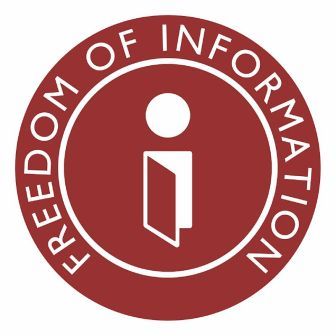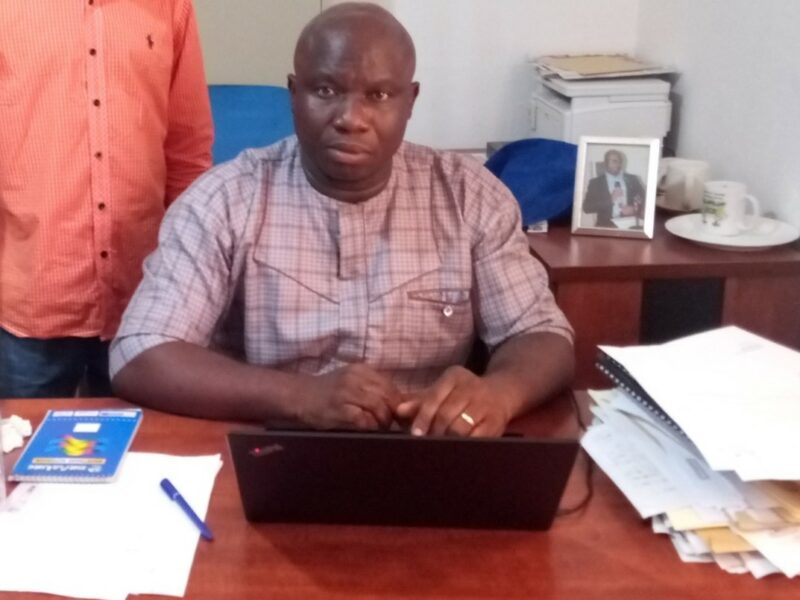Cultural Rights is a Journey: Freedom of Information is good but Tribal Anxiety is Bad
In the absence of any binding definition, ‘culture’ may be understood in different ways: narrowly as creative, artistic or scientific activities or, in a broader sense, as a sum of human activities, the totality of values, knowledge and practice. The adoption of the broader definition of ‘culture’ means that cultural rights also embrace the right to education and the right to information. Contemporary Cultural Right is struggling through a journey destined to reach the full attainment of Human Rights in Sierra Leone where also on the other lane a rivalry peripatetic tradition of tribalism, unconscious and conscious biasness craves to incarcerate the country’s democracy upon arrival. As such to abuse, the citizens’ Cultural Rights by restricting national understanding of developmental information and education through the mass media. An indicator is on the Freedom of Information Bill that is sinking in the well of the Sierra Leone Parliament. Freedom is a key character of Cultural Rights. Freedoms to/of Information, Freedom of Association to name a few, are among the cultural rights Sierra Leoneans must have enjoyed because of it categorical placement on the country’s National Crest. However, this same country had repeatedly failed to enact the Freedom of Information Bill that the present House of Parliamentarians would leave on their shelves or in the depth of the well. Little could these Members of Parliaments realize the helpfulness the this Freedom of Information Bill could have done towards promoting their constituents Cultural Rights, especially if they had demonstrated commitment by enacting the Freedom of Information Bill before the November 17 Polls. The neglect of Cultural Rights can as well bring us to visit the very 1991 Constitution that described the mass media as those obligated to perform very responsible duties according to Page 9, Chapter II, Part 11 and 12 a)b)c)d) that states:
Obligations of the mass media.
11. The press, radio and television and other agencies of the mass media shall at all times be free to uphold the fundamental objectives contained in this Constitution and highlight the responsibility and accountability of the Government to the people.
Enhancement of national culture.
12. The Government shall-
a.) promote Sierra Leonean culture such as music, art, dance, science, philosophy, education and traditional medicine which is compatible with national development
b.) recognize traditional Sierra Leonean institutions compatible with national development
c.) protect and enhance the cultures of Sierra Leonean; and
d.) facilitate the provision of funds for the development of culture in Sierra Leone.
The two references sighted above encourages this piece to argue the importance of the Freedom of Information Bill to stress that it should have been a-must-to-enact “Bill” to fulfill the prophesies of the 1991 Constitution of Sierra Leone. Nevertheless, our present Members of Parliament became blind to the culture of Freedom of Information but will soon realize the effect that the neglect of cultural right has on the country’s political process and its effective derailment they the Lawmakers has caused by their actions. Their action has the potential to impinge the country’s cultural rights of access to information because of the 1991 Constitutional obligations laid on the mass media to at all times be free to uphold the fundamental objectives contained in that constitution. Moreover, the 1991 Constitution went further to highlight the mass media’s stewardship towards government’s responsibility and accountability. Let it be clear that, “What we do not know can hurt us and others, but that which we know and does nothing will hurt us most than others. The cultures of Libel Laws are as equal to Tribal Anxiety in the Human Rights eye, along with conscious biasness in the promulgation of National Laws against Cultural Rights that can unwittingly affect our responses and performances towards the country’s democratic evolution. This we must cautiously stand against as a nation irrespective of our partisan backgrounds. Tribal anxiety is another issue held in the left hand of our Cultural Right. Tribal Anxiety may be widely known and often too complimented by conscious biasness on the political struggle. They are both critical, especially for people in positions of power where critical decisions are been made. Though emphasis on the significance of Cultural Rights ought not to be stretch long, the country can support a system of public education that brings together people of diverse experience, ability, and background to cultivate a new spirit of Cultural Rights. Our goal of creating a broadly educated populace skilled in critical thinking to instill a nationalized education on Cultural Rights depends on how many players are on the Human Right pitch and the perception we can all buy as a nation. Cultural Rights are often qualified as an ‘underdeveloped category’ of human rights in Sierra Leone and elsewhere, a 1991 seminar organized at Fribourg University accepted the terminology referred to Cultural Rights as an ‘underdeveloped category’ of human rights, though it need not be so at all, especially if we engage the principle of Human Rights Indivisibility and Universality. In my beloved country, Sierra Leone, it suggests that, in comparison with other categories of human rights: civil, political, economic and social rights, cultural rights are the least developed as far as their scope, legal content and enforceability are concerned. Indeed, Cultural Rights need further elucidation, classification and strengthening through the parliamentary instruments by enacting new cultural right laws or domesticate existing cultural rights related treaties. However, the term ‘development’ suggests the process of the creation of new rights. This point of view too many Human Rights Scholars share to a challenging flank, as the existing list of cultural rights is relatively exhaustive. Therefore, the problem is linked rather to the fact that, Sierra Leone had neglected or underestimated the significance of Cultural Rights and that they are treated as ‘poor relatives’ of other human rights as Political, Civil, Economic and Social rights. See what happened during the 50th Anniversary Celebrations, we all learnt a lot of our rich culture that remains untapped. Most of the activities we saw during that celebration we will hope to witness in the near future.
The neglect of Cultural Rights as observed had not only being in the doctrine of governance but also in the country’s practice. We can hardly find anywhere in our 1991 National Constitution which, when enumerating political, civil, economic and social rights, has a chapter dealing comprehensively with the citizenry’s cultural rights more than what I have referenced from the 1991 Constitution that limits itself to the “Enhancement of National Culture”. Disappointedly, in the International Covenant on Economic, Social and Cultural Rights, cultural rights are usually enumerated together with economic and social rights, they receive much less attention and quite often are completely forgotten even at the international plinth- a complete truth. Outlining the perilous effect posed by the neglect of Cultural Rights in Sierra Leone is to a simple exercise pointing out enormous challenges faced by the very highly rated political, civil, economic and social rights by the neglect of Cultural rights. This is because, all of the Five (5) components constituting Human Rights are indivisible to an extent that at any point in time we attempt to neglect a particular right, we are forced to make bitter some other rights.
There are universal human rights instruments. The United Nations that enumerates cultural rights was the Universal Declaration of Human Rights, adopted by the General Assembly on 10 December 1948. Sierra Leonean authorities should be aware of the fact that everyone has the right freely to participate in the cultural life of the community, to enjoy the arts and to share in scientific advancement and its benefits. This is exactly the cultural rights Journalist would like to enjoy by inter-personal exchange of information from those offices keeping the people’s future. There is also a need for our politicians to ascribe to every Sierra Leonean’s right to the protection of their moral and material interests resulting from any scientific, literary or artistic production of which he is the author. – That is the trouble Journalists face in Sierra Leone with the crude and ungodly Libel Laws repellent to the Mass Media and the general citizenry of our country. In Article 22 of the Declaration, everyone is entitled to the realization, through national effort and international co-operation, of the cultural rights, indispensable for his or her dignity and the free development of his or her personality.
Let me remind you that Cultural rights are individual rights to which every Sierra Leonean is entitled, no matter their status. The government of Sierra Leone should implement mainly, if not exclusively, in association with the other rights we have discoursed.
Gratefully, Sierra Leone had scored in other areas of Cultural Rights, especially in the collective dimension of cultural rights of persons belonging to vulnerable group. Now, there are spaces stipulated for Persons With Disability (PWD) to enter our national parliament. Furthermore, the 30% quota for women in Sierra Leone is linked to our cultural rights achievements with the fact that these rights can be fully guaranteed and observed only if the identity and very existence of such groups are protected. However, I have centered this piece on the Freedom of Information and Tribal inheritance as a Human Right because Cultural Rights is a Journey: Freedom of Information is good but Tribal Anxiety is Bad.
Sheka Mansaray
Stay with Sierra Express Media, for your trusted place in news!
© 2012, https:. All rights reserved.






